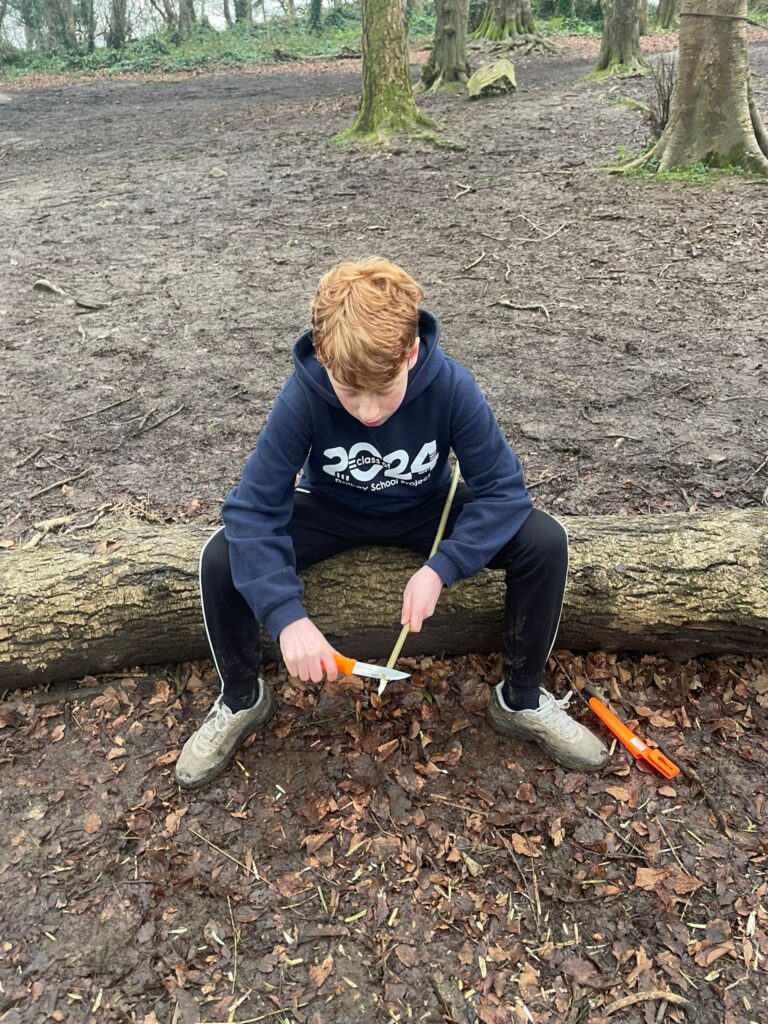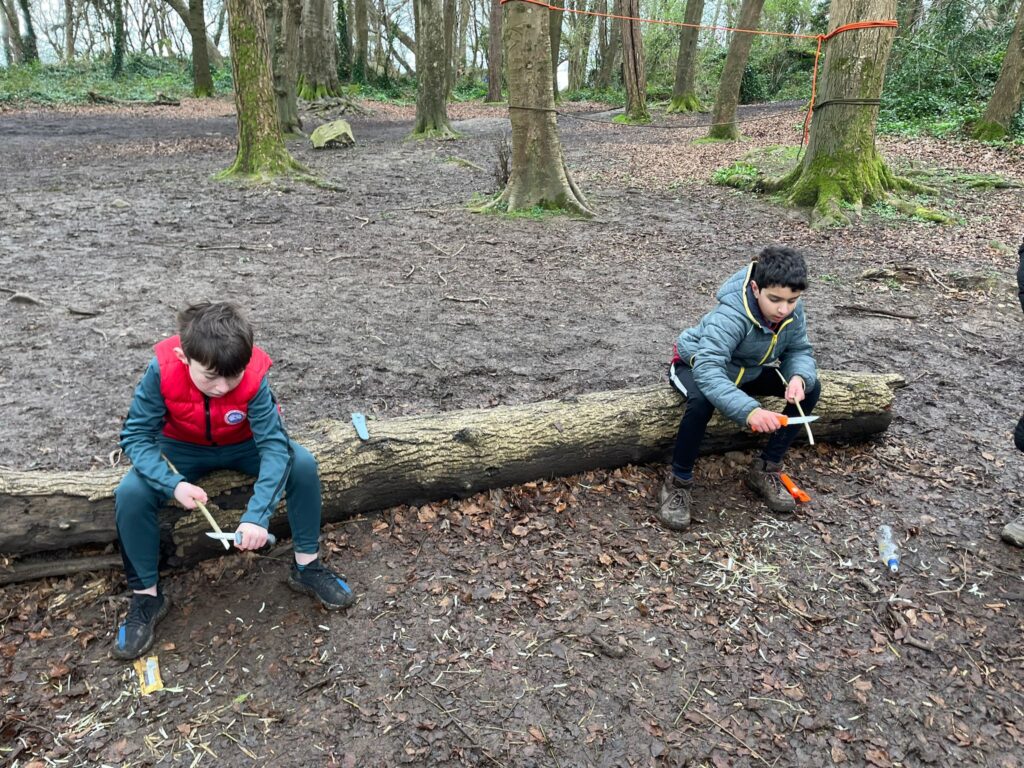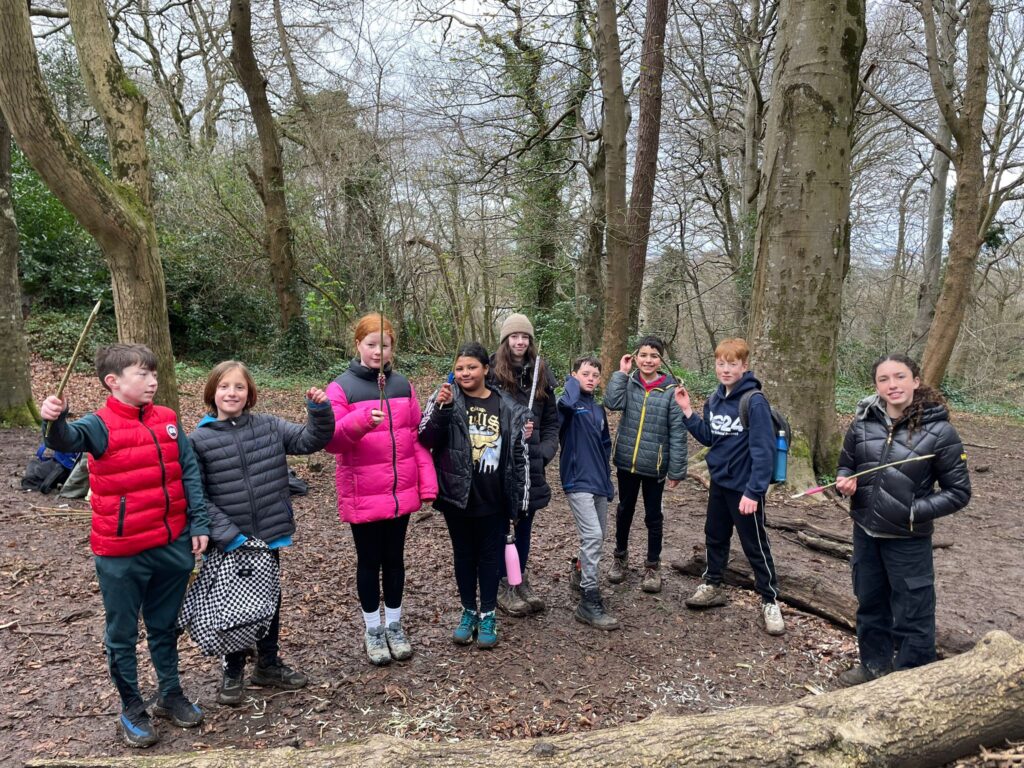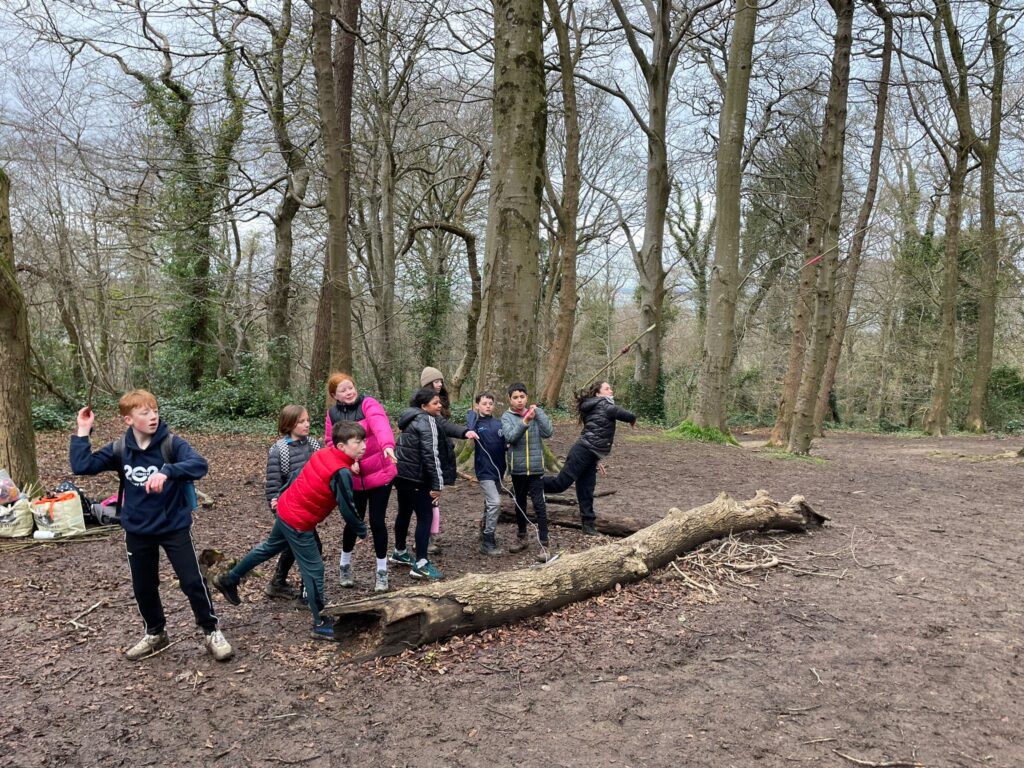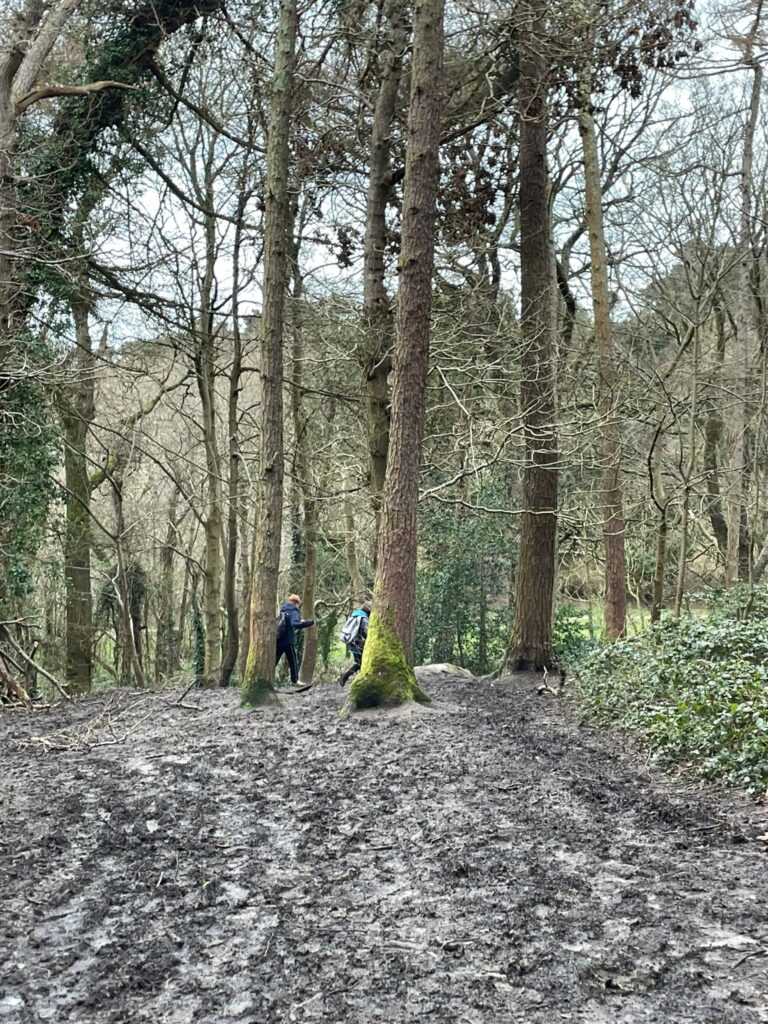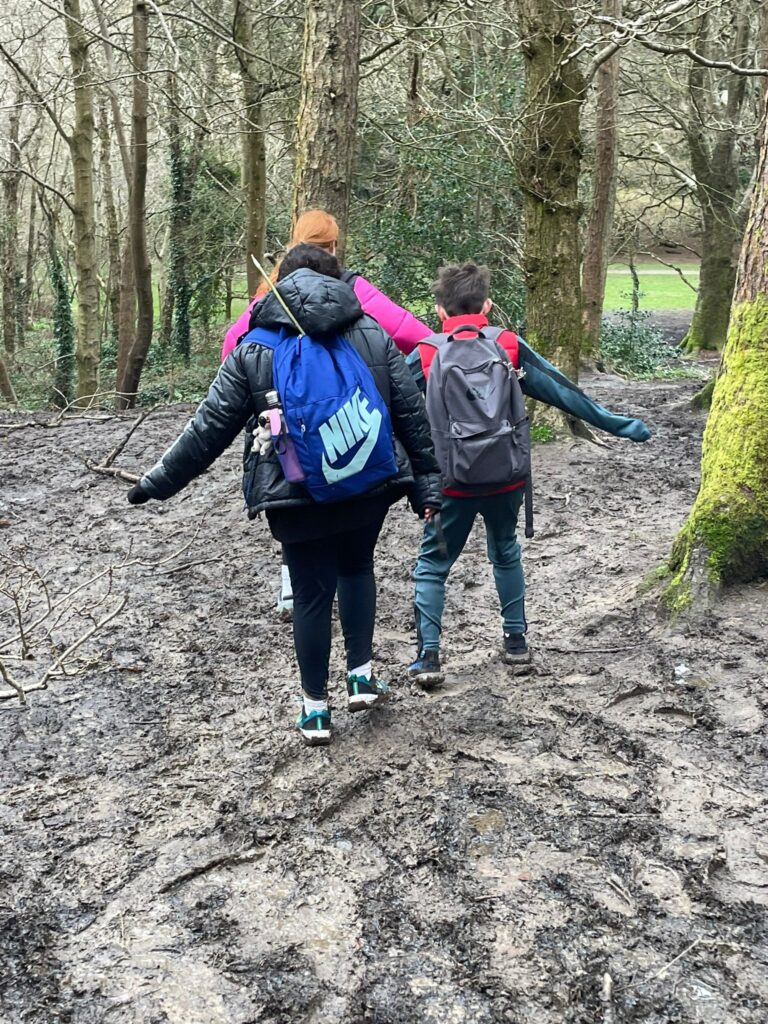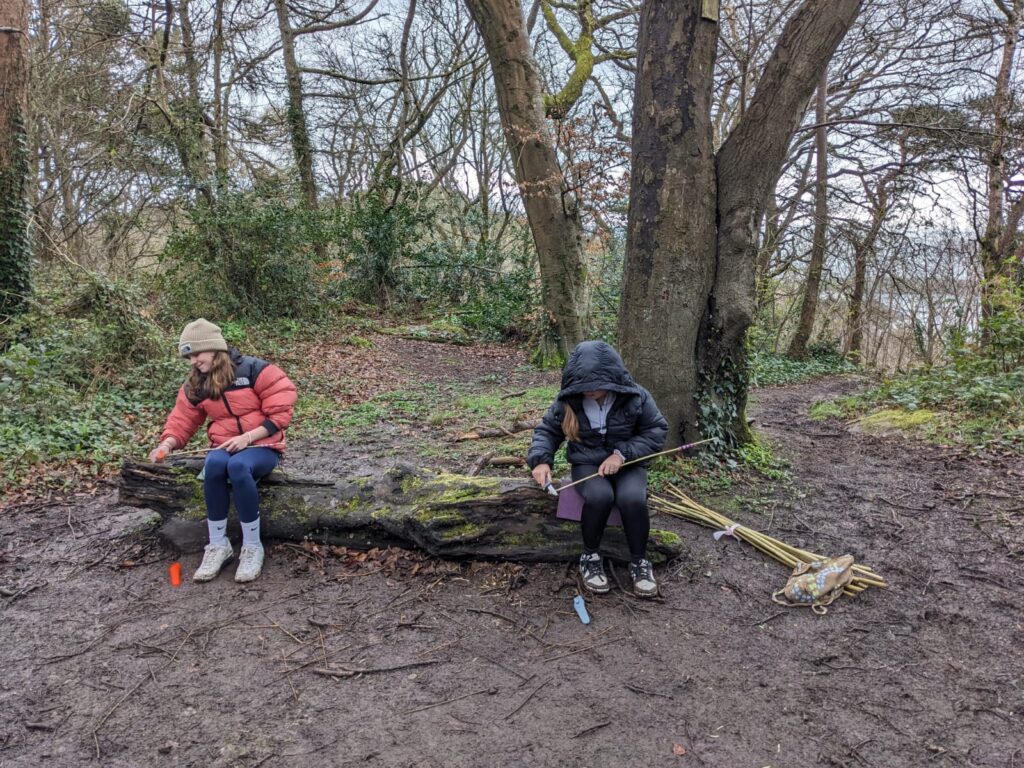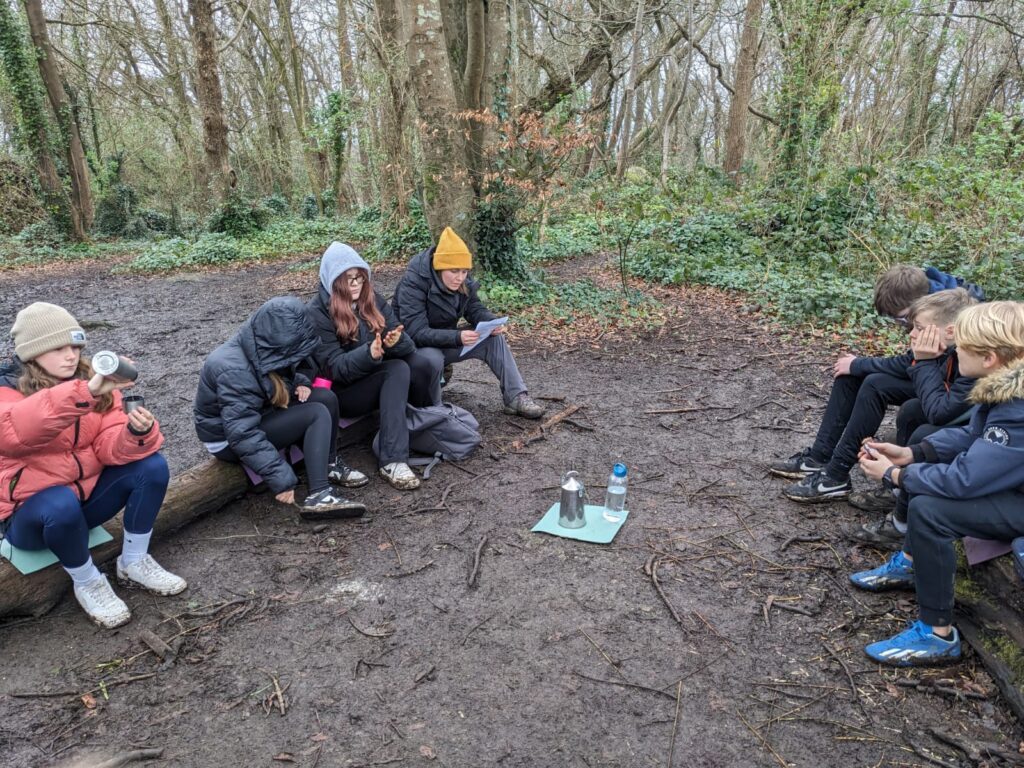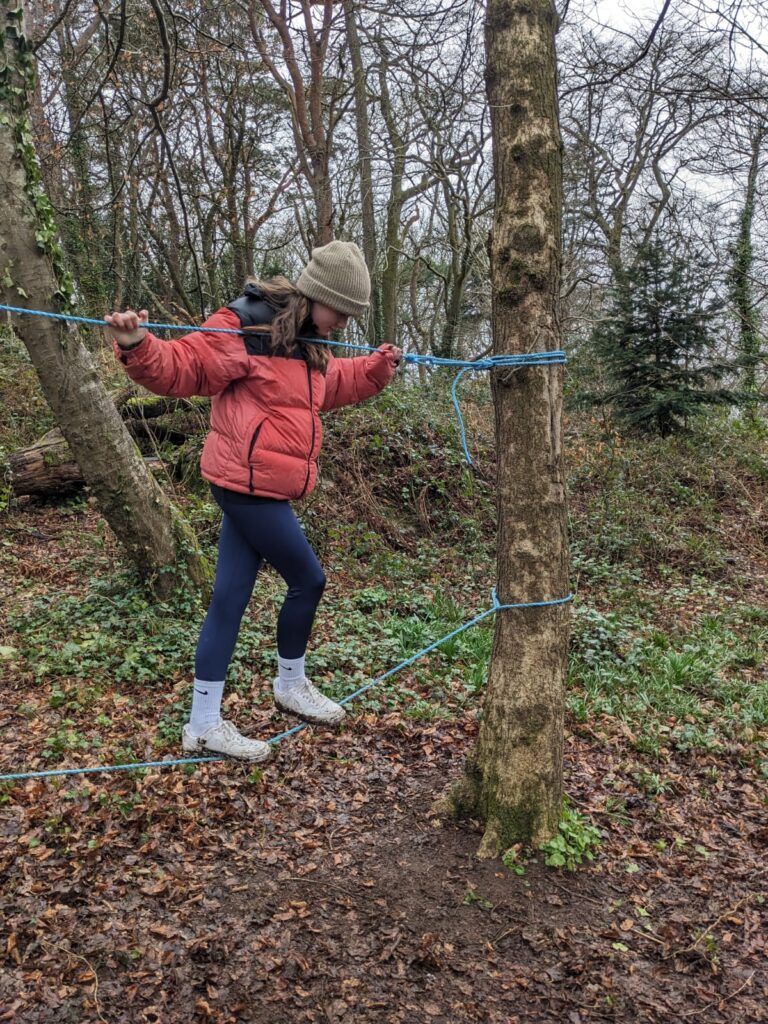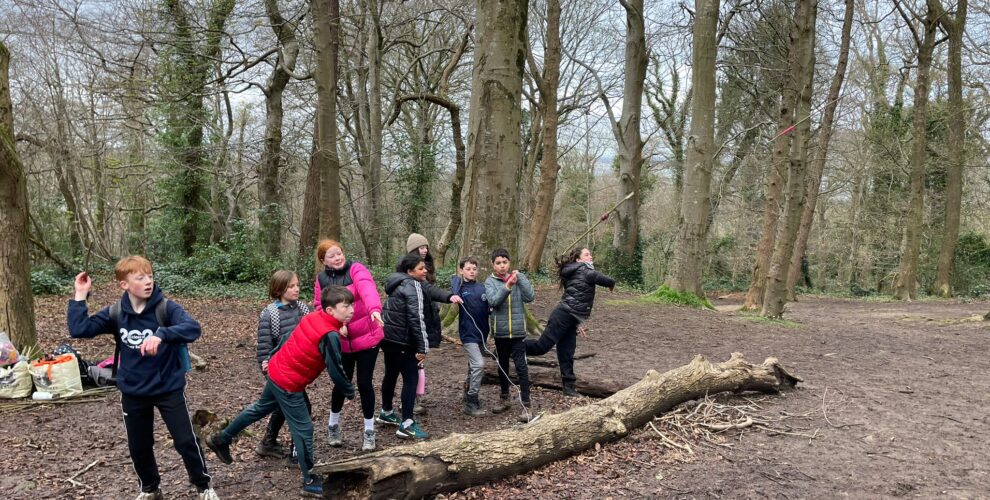It was a cold, still and cloudy morning. There was almost no wind in our base camp and we could hear lots of birds singing away throughout the session. Today’s theme was to think about the third of the forest school principles: “holistic development”. Forest School programmes aim to develop, where appropriate, the physical, social, cognitive, linguistic, emotional and spiritual aspects of the learner.
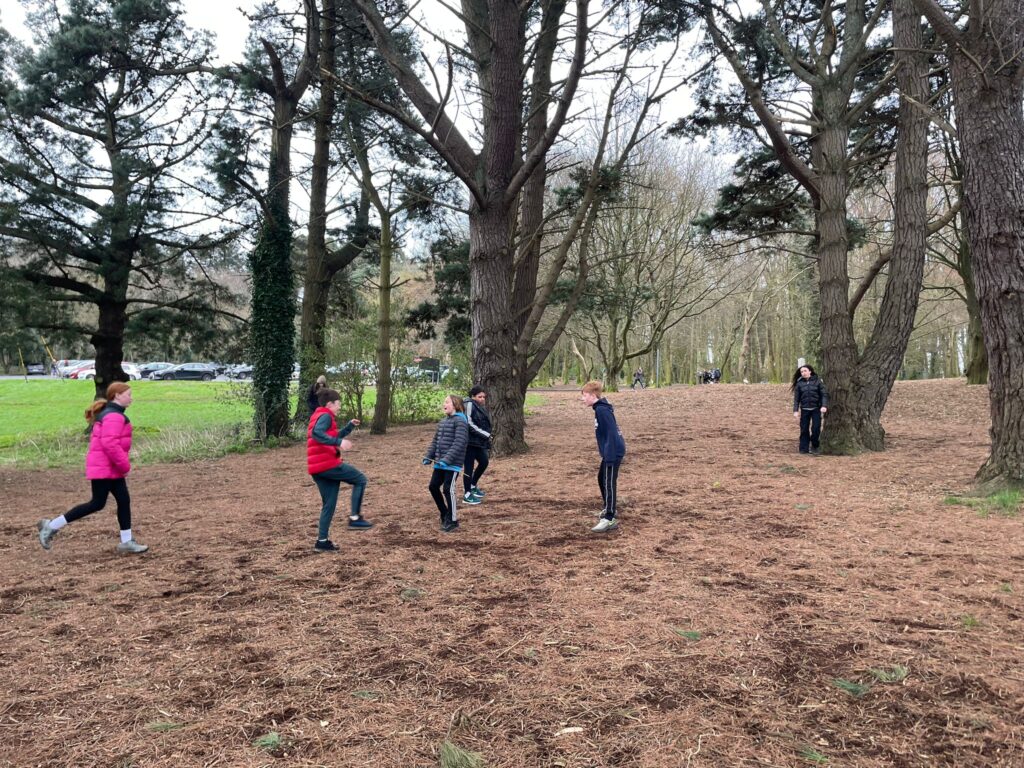
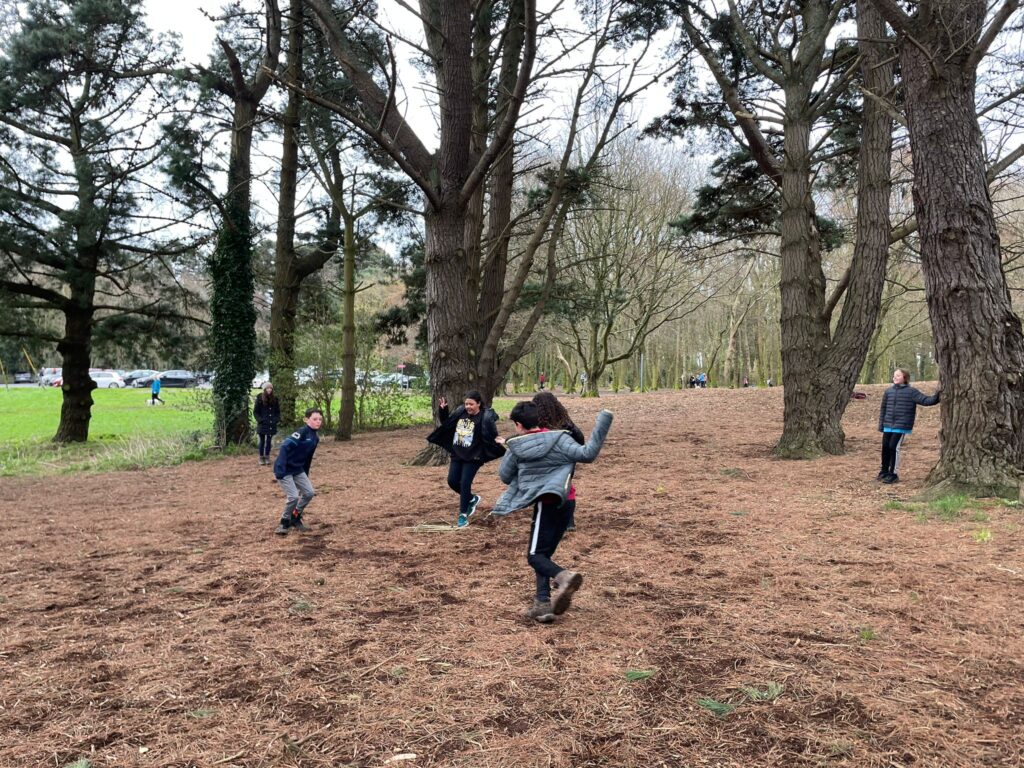
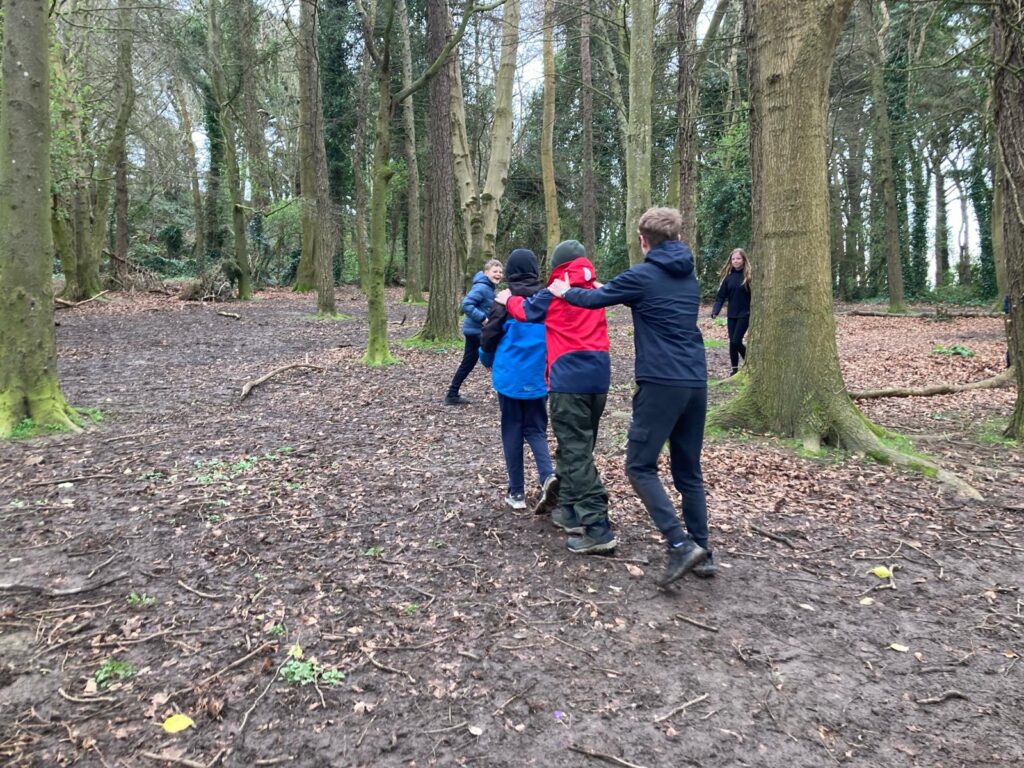
We started with Zombie tag at the beginning, which was a great warming up game. We discussed how we could make this a more nature based game for the younger children. One idea was to call it parasite tag; another was to call it caterpillar tag. Having fun together, agreeing on rules, physically moving are all parts of holistic learning.
On the way up to the base camp, the children noticed that jelly ear mushrooms were more spread over an elder tree than 2 weeks before. They touched and compared the softness with their ears. They talked about how they felt, and how it could be tasty when it’s fried.
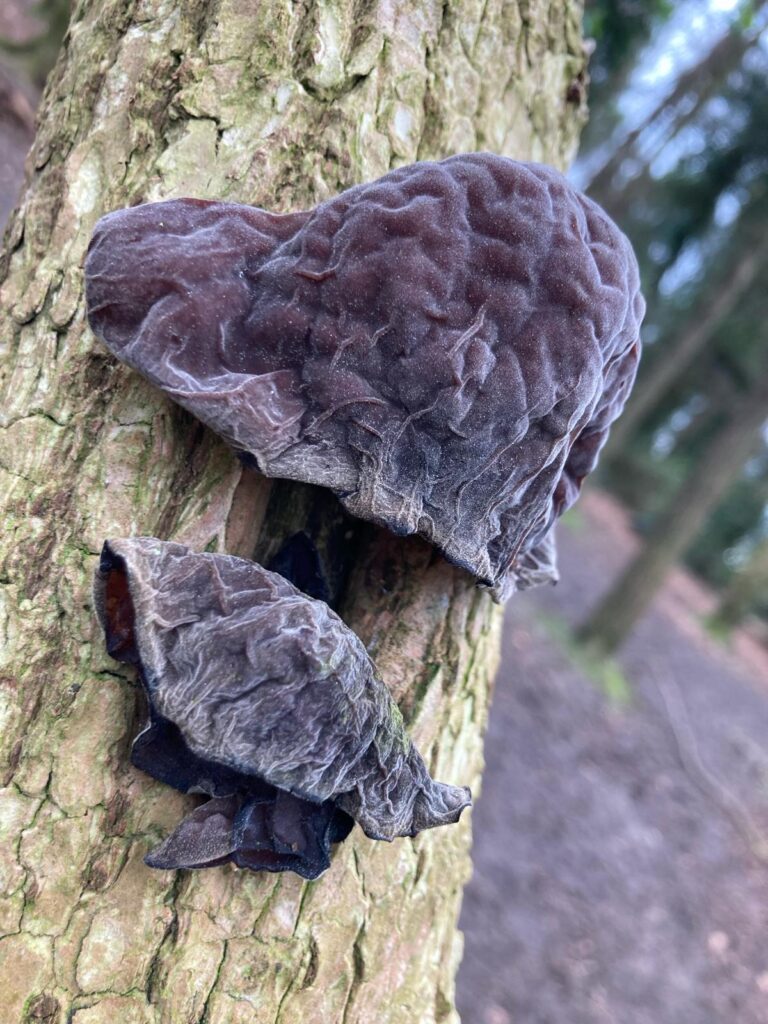
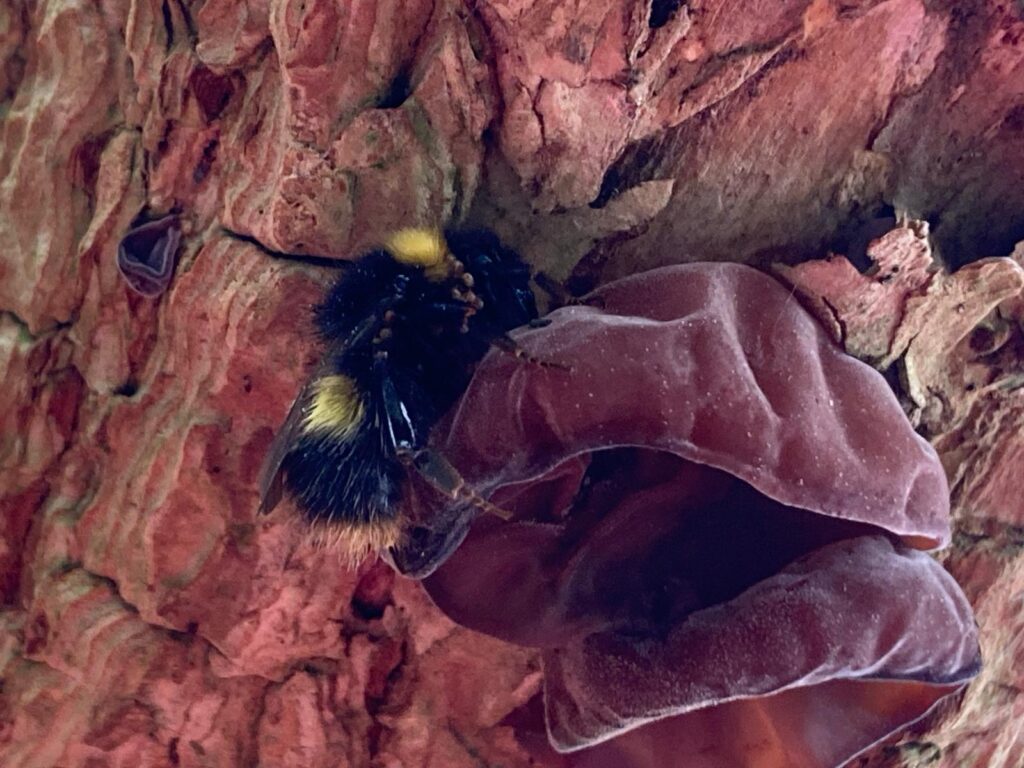
One of the children noticed a bumble bee stuck in the mushroom, and they argued whether it was alive or dead. Then they noticed the first bluebells blooming this spring.
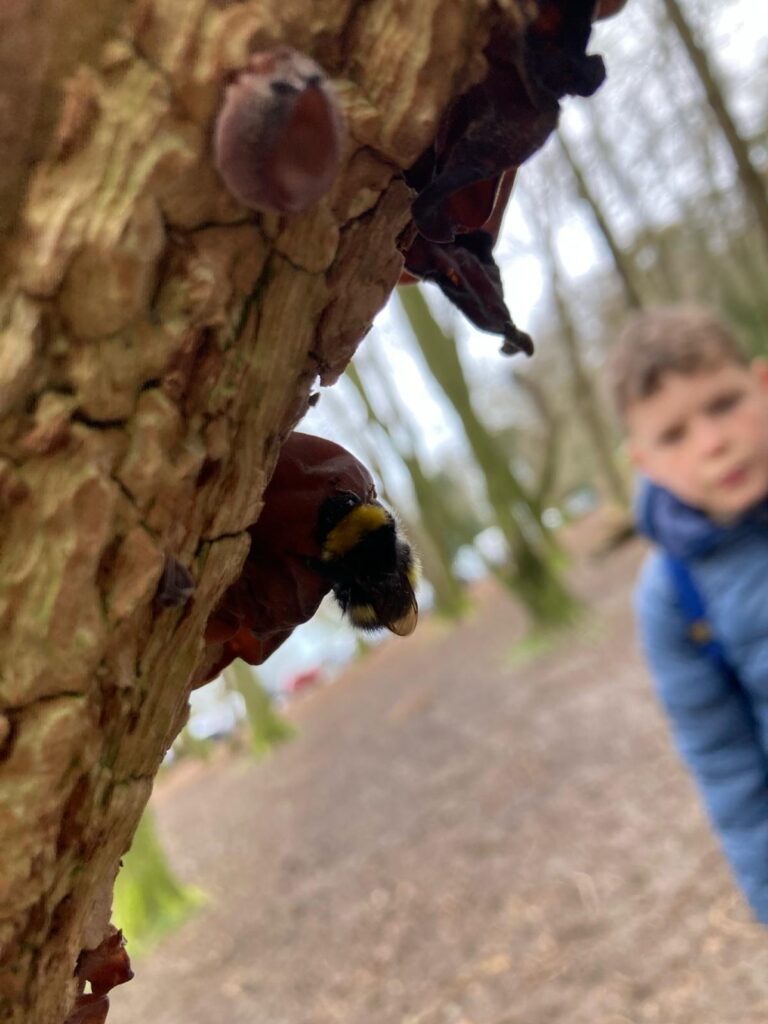
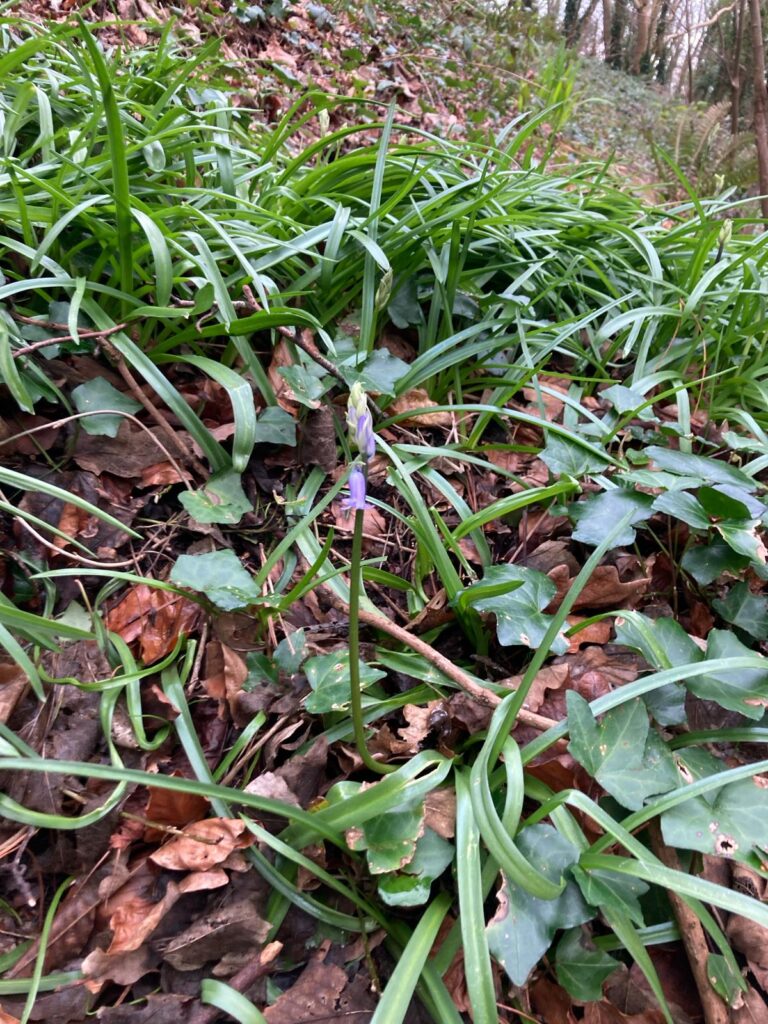
When the children got to the base camp, some of the children went straight to a den, and started to make an “extension” part to their existing den. They discussed how they wanted the den to look, and one of the children played a leading role organising the overall structure. The other children disappeared into the woods and came back with big sticks. They took these big branches from their old den which they made last year.
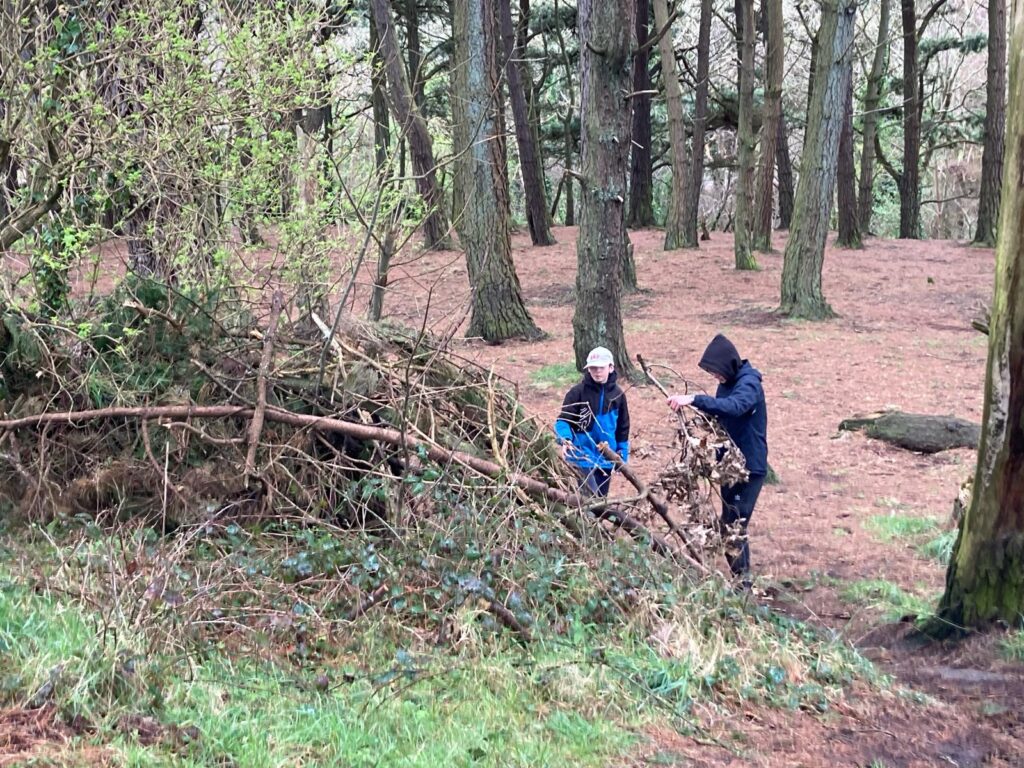
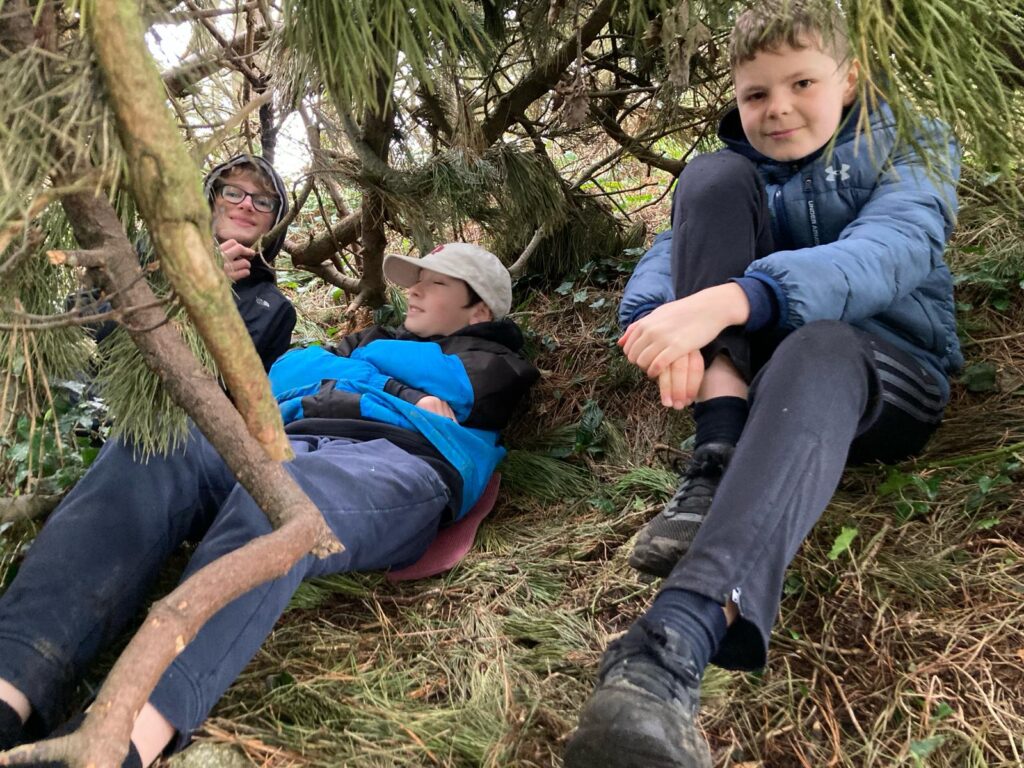
The children were concentrated, serious and focused, it looked like a very important team-work project. I realised then that it was a high-level form of play, and there was so much deep learning beneath it. There were no set goals, and not a right answer, so they needed to communicate and figure out what they wanted to achieve.
They naturally decided their individual roles to maximise the efficiency of the project, which involves observations, understanding the needs, thinking about what they can do as an individual as part of the team. These abilities are essential for team work.
Then building work needed brain work – they needed to have strategy, trial and error, and patience. Each branch was unique, and in an unexpected shape- they didn’t have saws to make them the right length, so they needed to work out where to use these branches to build the most stable and sturdy structure, which was challenging.
It was great to observe that the 6th class children are capable of enjoying this kind of deep play. They can create fun out of nothing. They don’t need expensive gear, and they don’t need external approval to feel it is right for them. But these children were able to immerse themselves into such simple play, and it seemed to give them a sense of achievement, ownership, a sense of belonging to each other, satisfaction, joy and contentment. Having forest school throughout their primary school years might have given them this important ability. Knowing how to make themselves safe and happy. And they know with their instincts what nature can provide.
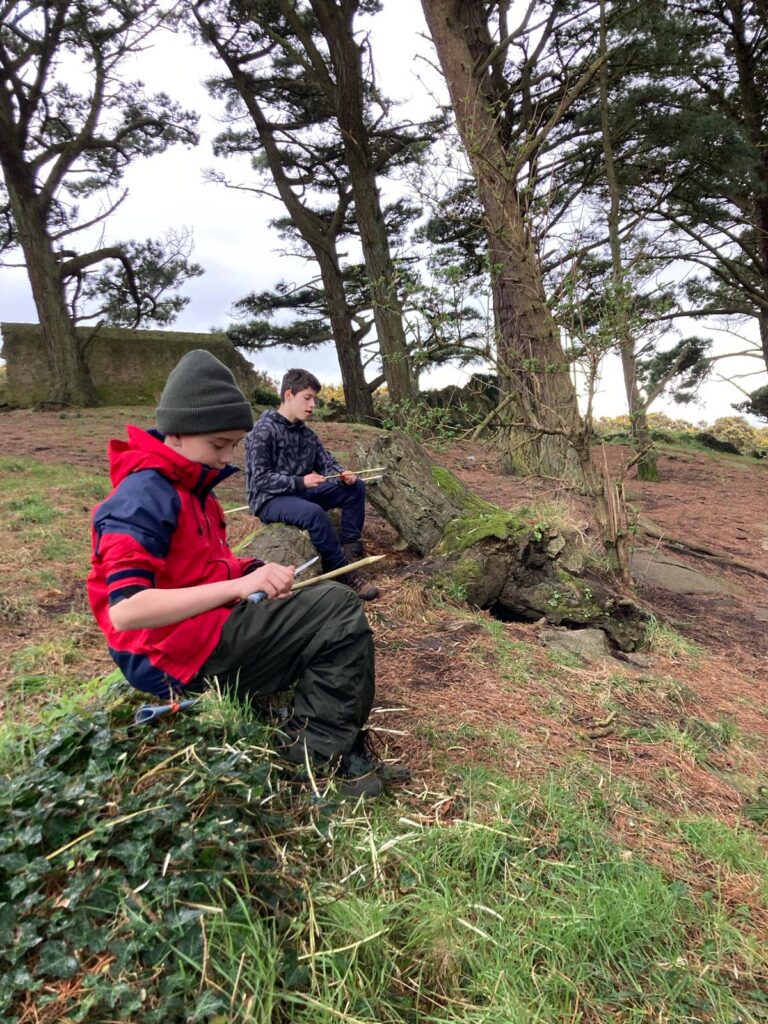
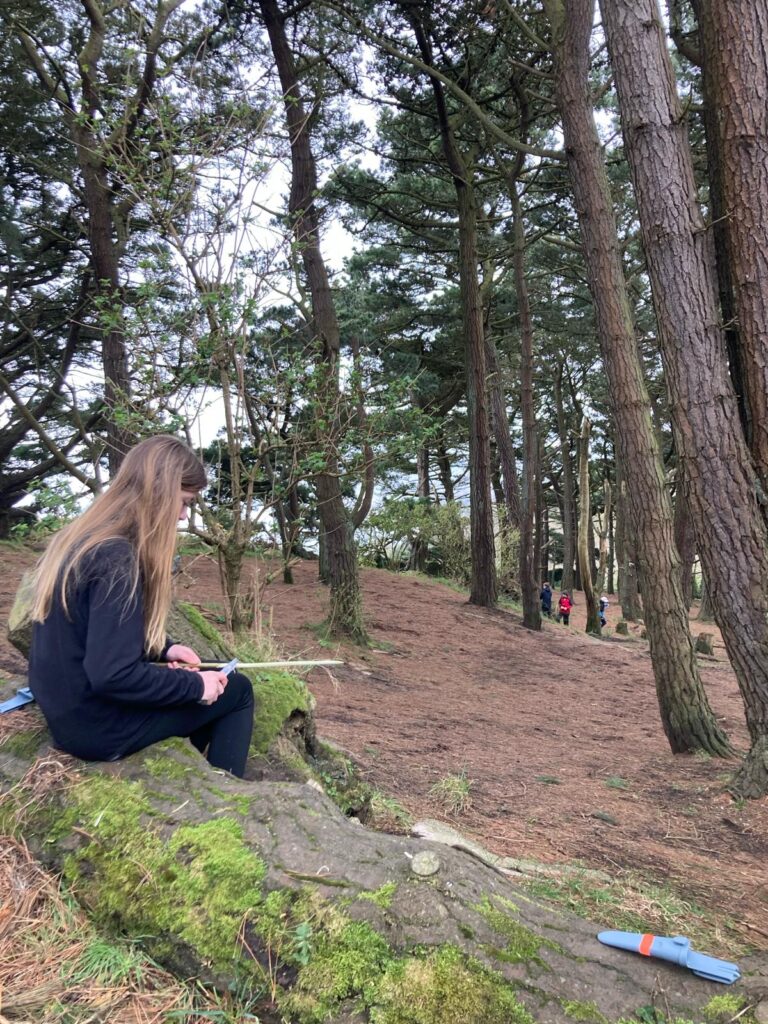
The other children enjoyed making bows and arrows using willow sticks and knives. They made notches at both ends of the bow, and tied them tightly with a string. Two children made an aiming circle, and they had a competition to see who could get their arrows closest to the circle. One of the children’s arrows always went further, and then the other child investigated why this was. One of the children tried putting weight at the front edge by coiling up the wool, but it didn’t work. Finally, he decided to make another arrow with a longer willow stick. He tried the new arrow again, but it still seemed to need more work next week.
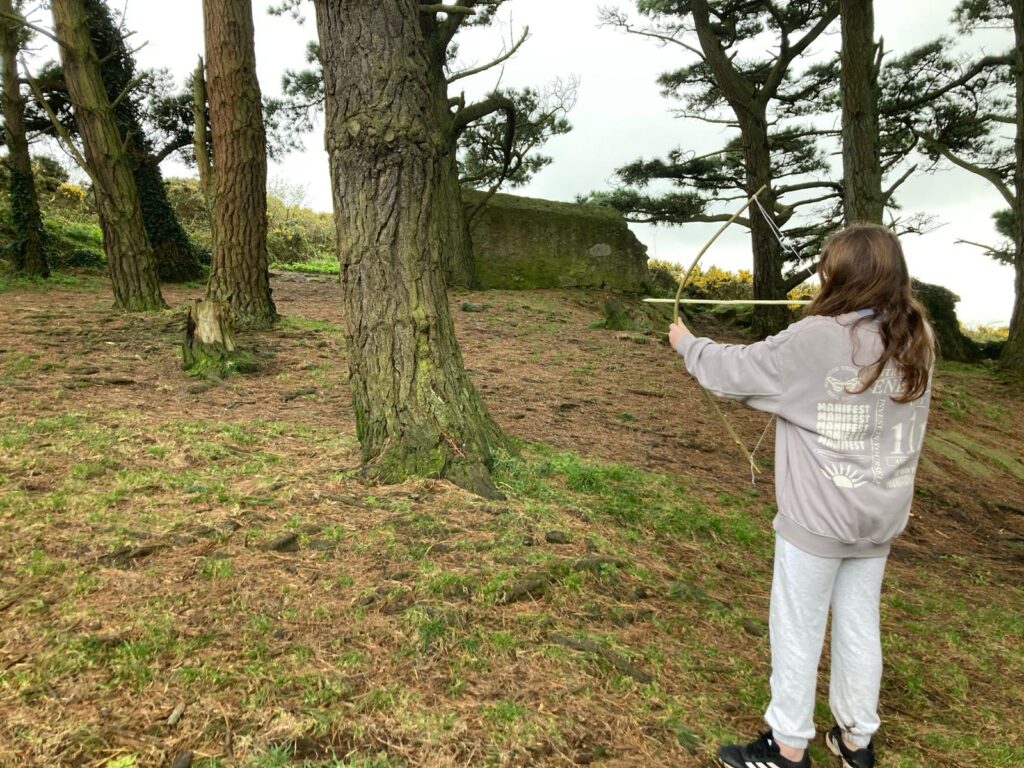
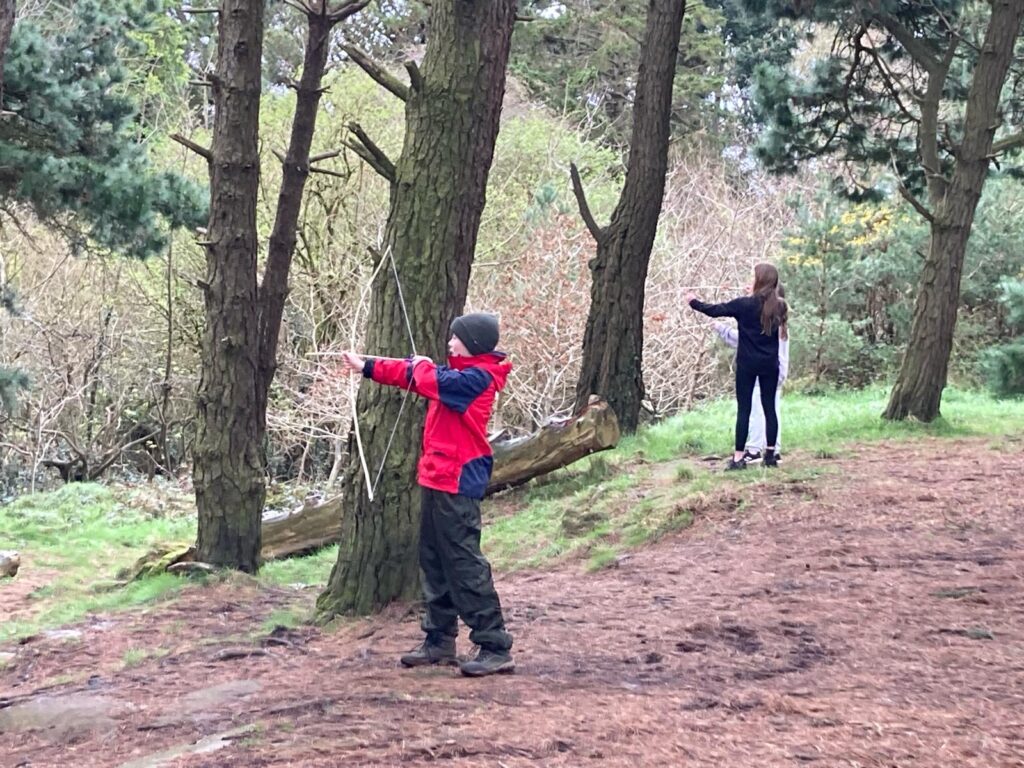
At lunch time, the teacher shared a story from Irish mythology, and it was about an Irish mythological hero Finn speaking of his favourite music in the world. Everyone shared their favourite music (sounds) from nature, and their answers were poetic.. “The sound of trees waving in the wind, the sound of sea when I am lying beside the sea, the sounds of a blue tit, the sound of insects, and the sound of cuckoo birds”… They have got used to sharing their honest feelings. Forest School not only gives them freedom to explore, but also encourages them to use their senses by having a moment to share this at the end.
As today’s theme was “holistic development”, the teacher asked them about the routine of forest school, and what each forest school activity gives them. The children started to think about which part of the body and senses they used when they were doing activities such as games, free play, sit spot, sharing stories and gratitude. We are all made up of lots of parts and it is so important that all our parts get the opportunities to be nourished and developed. Maybe when they look back, they will recognise what Forest School really meant for them, and we hope that the benefit stays with them for the rest of their lives.
